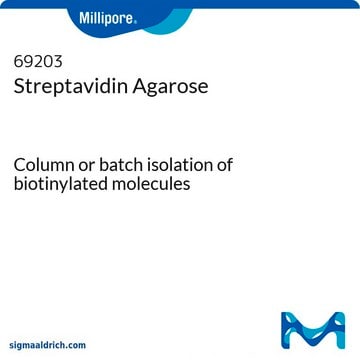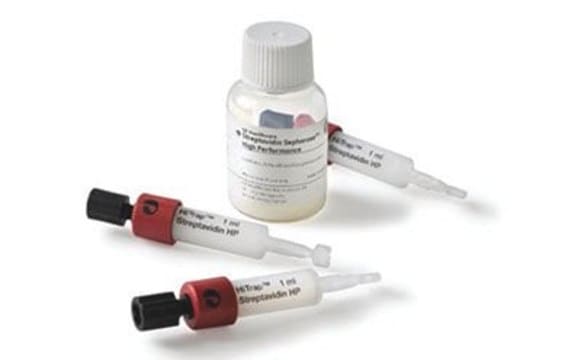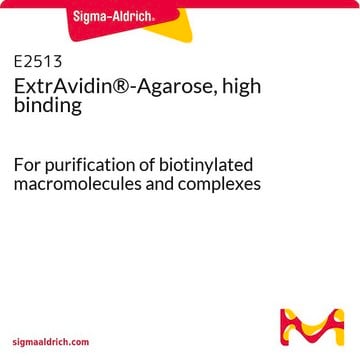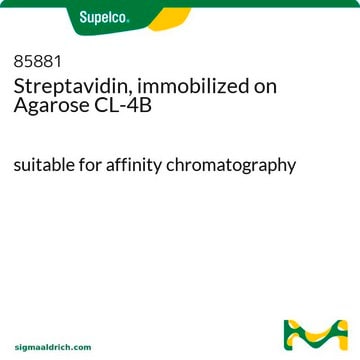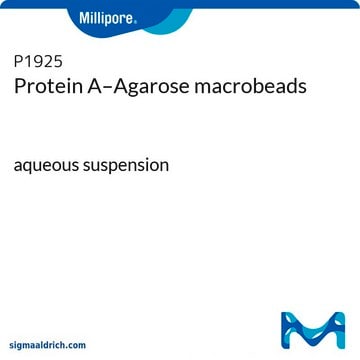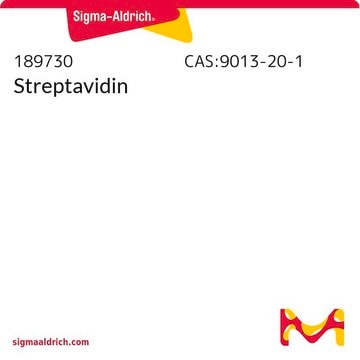A9207
Avidin−Agarose from egg white
aqueous glycerol suspension
Synonyme(s) :
Avidin agarose
About This Item
Produits recommandés
Source biologique
egg white
Niveau de qualité
Conjugué
agarose conjugate
Forme
aqueous glycerol suspension
Matrice
cross-linked 6% beaded agarose
Activation de la matrice
epichlorohydrin
Fixation de matrice
amino
Espaceur de matrice
15 atoms
Température de stockage
−20°C
Description générale
Application
- in the precipitation of biotin tagged protein by pull down assay in neuroblastoma cell line (SH-SY5Y )
- in the purification of Lewis(x) sugar binding proteins from Schistosoma mansoni
- in avidin bead assay for purification of labelled biotin
- for capture of glycoproteins from murine cornea samples
Actions biochimiques/physiologiques
Définition de l'unité
Forme physique
Code de la classe de stockage
10 - Combustible liquids
Classe de danger pour l'eau (WGK)
WGK 3
Point d'éclair (°F)
Not applicable
Point d'éclair (°C)
Not applicable
Certificats d'analyse (COA)
Recherchez un Certificats d'analyse (COA) en saisissant le numéro de lot du produit. Les numéros de lot figurent sur l'étiquette du produit après les mots "Lot" ou "Batch".
Déjà en possession de ce produit ?
Retrouvez la documentation relative aux produits que vous avez récemment achetés dans la Bibliothèque de documents.
Les clients ont également consulté
Contenu apparenté
Tests, réactifs et protocoles permettant d'étudier les interactions protéines/protéines in vitro par différentes méthodes : pull-down ou GST pull-down, purification par affinité en tandem (TAP pour "Tandem Affinity Purification") et co-immunoprécipitation.
Investigate in vitro protein-protein interactions with pull-down assays, utilizing affinity, GST pull-down, TAP, and co-immunoprecipitation methods.
Notre équipe de scientifiques dispose d'une expérience dans tous les secteurs de la recherche, notamment en sciences de la vie, science des matériaux, synthèse chimique, chromatographie, analyse et dans de nombreux autres domaines..
Contacter notre Service technique
